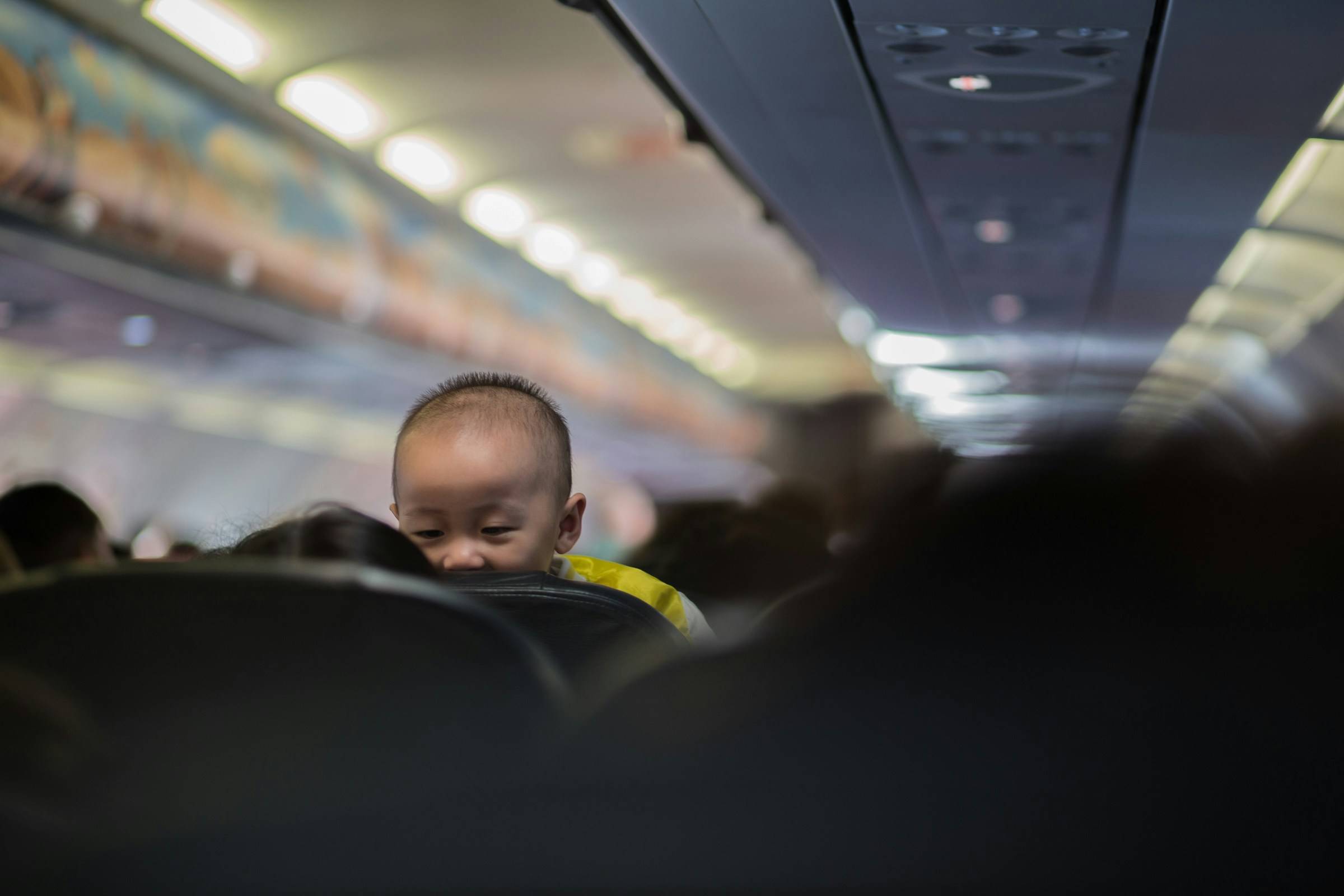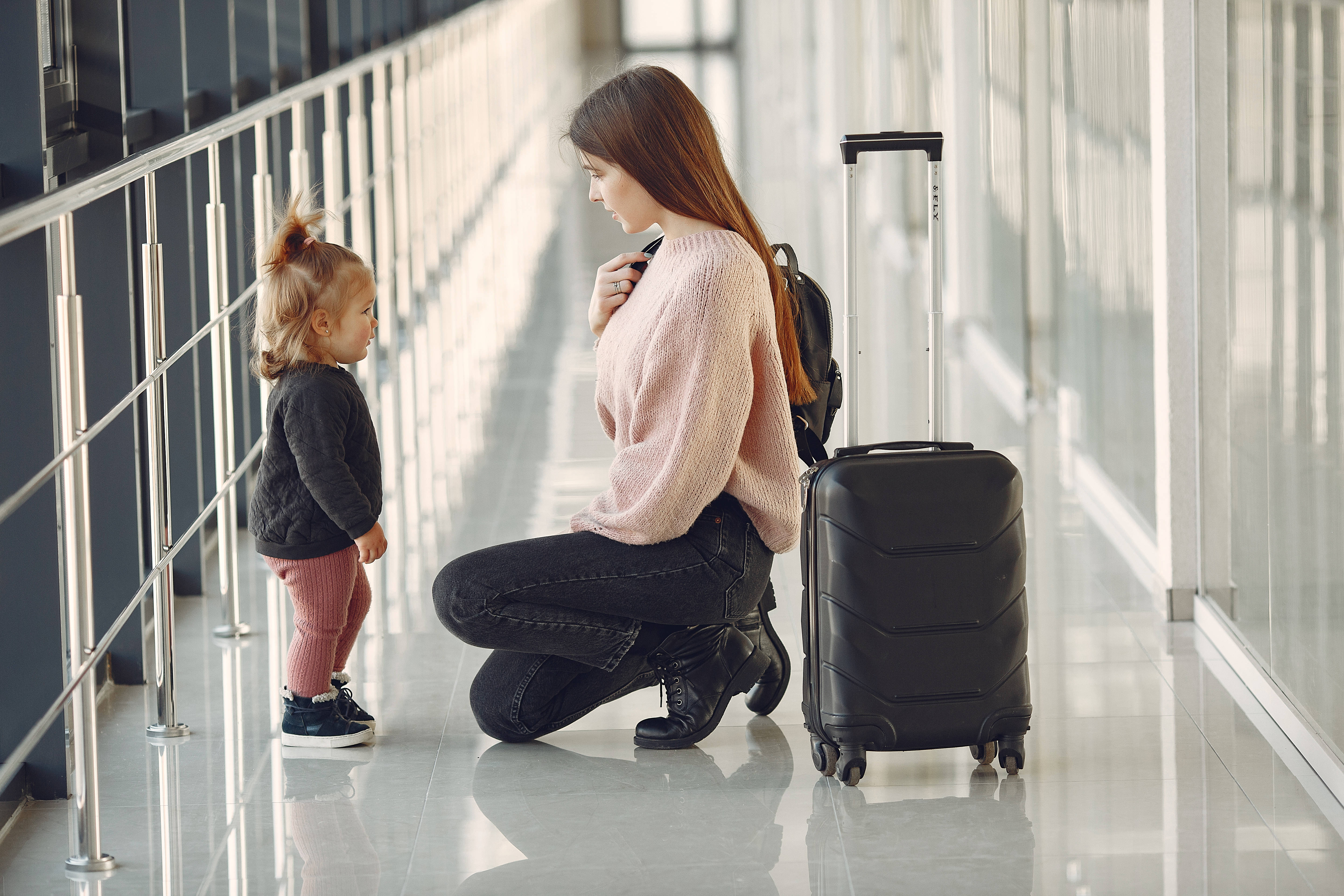Rules to Know When Bringing Infants on Flights
It is estimated that millions of parents travel with children on domestic and international flights each year. Since most airlines do not require parents traveling with an infant or toddler to purchase tickets, most parents prefer to let them lap ride. However, airline requirements, pricing, and regulations seem to change each day and vary depending on the airline. If you are a parent of a young child, what can you expect to pay for kid's airline tickets, and what's the best way to travel with children?
Understanding Age Requirements
When traveling with a baby, most commercial airlines define an infant as less than two years old (no more than 24 months of age). Since children vary in size, it's recommended that parents travel with the child's birth certificate if he or she is between one and two years old. Additionally, infants traveling internationally will need a passport. Most airlines require children under two to be accompanied by an adult over 18 years of age. However, some allow the adult to be only 14.
READ MORE: Tips for Kids' Carry-on Items
Choosing the Right Seating Option
Parents have two main options when traveling with infants: lap for free or purchasing a separate seat. For domestic flights, children under two can ride on a parent's lap without a ticket. For international flights, lap children may have to pay 10 percent of the adult fare plus taxes and surcharges. Inform the airline early if a lap child will accompany you. Some websites offer an option for this during booking, or you can call the airline after booking online. It's best to avoid last-minute notifications at the airport to prevent complications.
If you are traveling with a lap child, you will likely need to check a car seat. Check the car seat at the gate; it may be a hassle to carry it through the airport, but if empty seats are available, the crew may allow you to use one. Having your car seat available can be beneficial.
READ MORE: Getting Kids Thru Security
Purchasing a Separate Seat
Parents traveling with children who want their child to have his or her own seat must purchase a full-price ticket. Kid's airline tickets are often not discounted on many travel websites, so you may need to call and ask if discounts are available when traveling with children.
Additionally, the Federal Aviation Administration (FAA) requires that children in their own seats must be in an FAA approved Child Restraint System (CRS). The FAA recommends all children fly seated in a CRS, but does not mandate that children under the age of two do so. Parents should weigh the safety issues carefully when deciding.
When my first child was six months old, I chose to buy a separate seat for him on a long-haul flight. It was a game-changer! Not only did he sleep better in his car seat, but it also gave me peace of mind knowing he was safe and secure.
Preparing for the Flight
When booking your flight, inform the airline if you will be traveling with an infant. Some airlines offer discounts for children's tickets, but you may need to call customer service to inquire. Pack essential items such as car seats, diapers, and toys. TSA allows extra items like breast milk and formula through security checks, so pack accordingly. Consider what carry-on items will be necessary for the flight, and ensure they are easily accessible.
On a trip to Europe, I learned the hard way to always have extra diapers and a change of clothes in my carry-on. A sudden delay left us stuck on the tarmac for hours, and I was thankful for the foresight to pack more than I thought we'd need.
Navigating the Airport with Infants
Arrive at the airport early to allow plenty of time for check-in and security. Use strategies to streamline the check-in process, such as online check-in and using family lanes at security. Gate-check strollers and car seats for convenience, and take advantage of priority boarding options if available. The TSA provides special assistance for families traveling with infants, including dedicated family lanes.
I always find that checking in early and taking advantage of family lanes at security makes the process smoother. On one occasion, the TSA agents even helped me manage my stroller and carry-on, which was a huge relief.
In-Flight Tips for a Comfortable Journey
Keep your infant entertained with toys and activities during the flight. Bring snacks and be prepared for feeding times. To help your infant sleep, bring familiar items like a blanket or stuffed animal and consider the flight schedule to align with nap times. Managing ear pressure during takeoff and landing can be challenging; nursing or using a pacifier can help.
During a long flight to Asia, I discovered that small, new toys wrapped like presents kept my toddler entertained for hours. The novelty of unwrapping and playing with something new was a lifesaver.
FAQ: Bringing Infants on Flights
Find more help here for your journey through the airport



